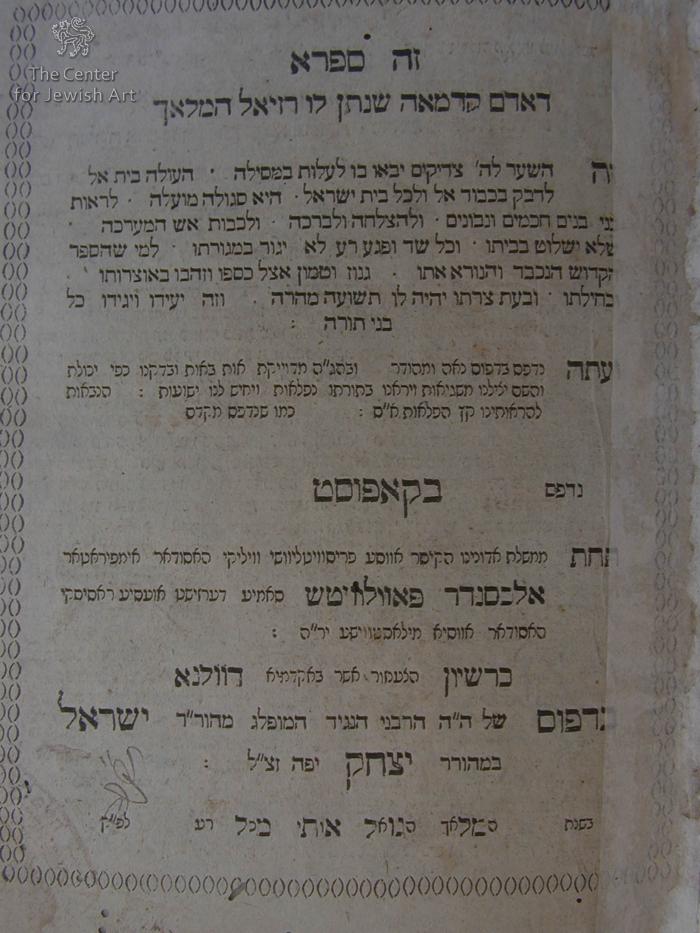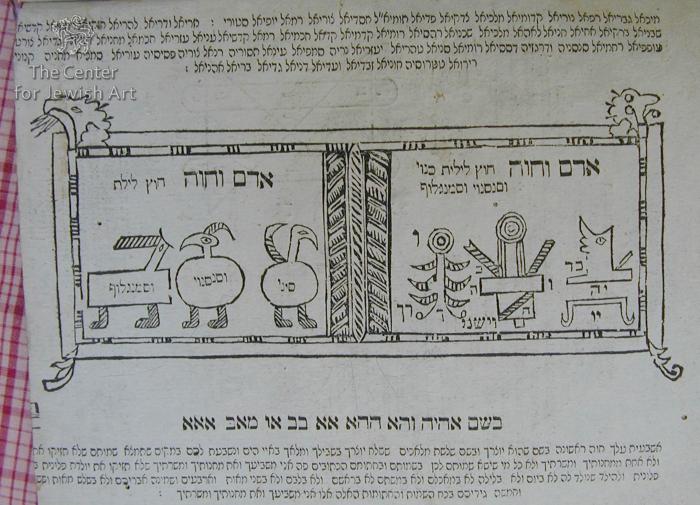Obj. ID: 35426 Sefer Raziel ha-Malakh, Kopys', 1820

sub-set tree:
The following description was prepared by William Gross:
The book Raziel Hamalach is considered the basic book for amulets and practical Kabbalah. The tradition around the book attributes it to have been revealed to Adam by the angel Raziel. The title itself is mentioned in another magical work of late antiquity, The Sword of Moses. Critical historians regard it as a medieval work, most probably originating among the Chassidei Ashkenaz, as citations from it begin to appear only in the 13th century. Sections of it are no doubt older. The likely compiler of the medieval version is Eleazer of Worms, as "Sefer Galei Razia", which developed to what we have now as "Sefer Raziel Hamalach", including more writings written by people of various theological opinions.
The book draws heavily on Sepher Yetzirah and Sepher Ha-Razim. There are multiple manuscript versions, containing up to seven tractates. The printed version of Sefer Raziel is divided into five books, some of it in the form of a mystical Midrash on Creation. It features an elaborate angelology, magical uses of the zodiac, gematria, names of God, protective spells, and a method of writing magical healing amulets.
The first printed edition of the famous book "Raziel Hamalach" was issued in Amsterdam in 1701. This volume basically determined the texts and diagrammatic representation of many basic amulets from this time on, being endlessly copied in almost all places that amulets were written. The second edition was not published for over 90 years, but then numerous editions were issued from the Hebrew presses of Eastern Europe. It continues to be printed to this day.
This is one of the earlier editions of the book, apparently the 7th. It is printed on the slightly blueish paper so common from the small presses of Eastern Europe.
The printer, Rabbi Yisrael Yaffe, is known as the "Printer from Kopyst." He printed many Chassidic works. Rabbi Yisrael Yaffe was a disciple of Rabbi Menachem Mendel of Vitebsk and was close to the Baal HaTanya. He carried the Baal HaTanya on his shoulders when he was released from prison in 1799. An adherent of Chabad Chassidism, he eventually emigrated to Eretz Israel, settled in Hebron, and established the country's first Hebrew printing press.



